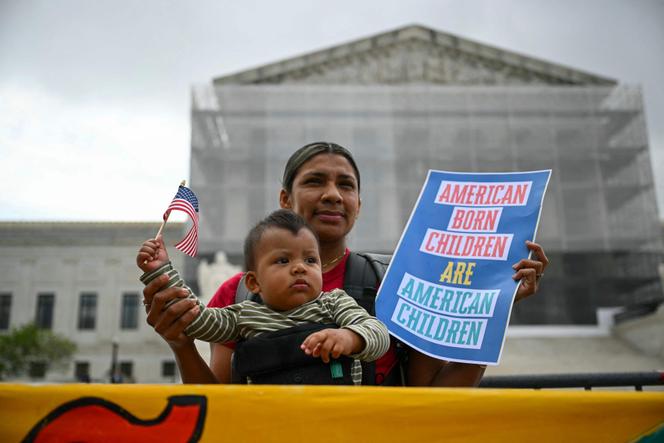


As expected, Donald Trump's proposal to reform birthright citizenship to deny American citizenship to children born in the US to parents without legal status faced opposition from Supreme Court justices on Thursday, May 15. The high court was urgently approached by the government, which asked it to lift the injunctions from federal judges blocking the implementation of one of Trump's key immigration policies.
In one of his first executive orders on January 20, the American president announced that children born on American soil to parents who are undocumented or on a temporary stay would no longer automatically receive American citizenship. These provisions, which were to take effect on February 19, would also apply to children of H-1B visa holders.
The order was immediately challenged in court by 22 states and several civil rights advocacy groups, arguing that it contravenes the 14th Amendment of the Constitution, which states that "All persons born or naturalized in the United States, and subject to the jurisdiction thereof, are citizens of the United States and of the State wherein they reside" − regardless of their parents' immigration status. This interpretation is shared by the majority of constitutional scholars.
You have 75.35% of this article left to read. The rest is for subscribers only.
